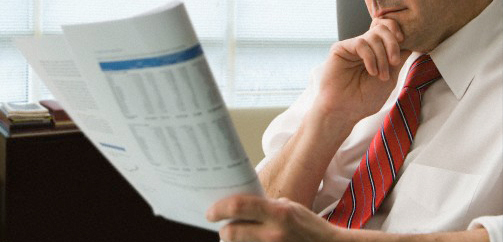01.01.20 by Jonathan Feil
Software Developers Beware: "Automatic" Copyright Isn't
Software developers that have put off registering their copyrights are more vulnerable than ever, courtesy of the U.S. Supreme Court. The bright side is that registering your software’s copyright, if done proactively, is not complex or expensive. Waiting until your product has been infringed, however, can render your rights practically unenforceable.
In principle, copyright protection is automatic the moment a work is created and fixed in a tangible, perceptible form (for example, a computer program saved to a file). In practice, “automatic” is true only if what you create has no value to anyone other than you. It’s a toothless protection, and you are at the mercy of infringers if you do not take the step of registering your copyright.
The Supreme Court made this plain during this past year when it decided that copyright owners must complete registration before bringing an infringement suit. Before the Court’s decision in Fourth Estate Public Benefit Corporation v. Wall-Street.com, LLC, there was inconsistency in the federal courts, with some courts permitting copyright lawsuits if the copyright claimant had filed its application with the Copyright Office but the Office had not yet acted on it.
The Supreme Court rejected that position, concluding that it would render other parts of the Copyright Law superfluous. So, take literally the statutory requirement that “no civil action for infringement of the copyright in any United States work shall be instituted until ... registration of the copyright claim has been made.” And for “made,” read “completed.”
A copyright owner can recover damages for infringement activity that happened before the registration. But the owner may have to wait a while for the registration to complete. The Court cited government reports showing that registration wait times had increased to an average of seven months. Nevertheless, the Copyright Office’s administrative lag in processing applications doesn’t provide copyright owners a way‑around by simply applying for registration before commencing suit.
The Supreme Court noted that the Copyright Office allows copyright claimants to seek expedited processing. In situations involving pending or prospective litigation, the Copyright Office will “make every attempt to examine the application ... within five working days.” However, the “special handling” procedure requires an additional $800 fee per application – a significant burden in many situations.
There are legions of copyright owners who, for various reasons, have not registered their copyrights. In this author’s observation, possibly the most prevalent are in the software industry. There are various reasons for this, included the perceived complexity of the deposit process. However, if you care about your copyright, you are putting your business in jeopardy if you do not have a procedure in place to register your software when you publish it.
Registering your software’s copyright is not necessarily complicated or costly. It is less expensive to apply for a copyright registration than a trademark, and it is far less costly and much simpler than obtaining a software patent.
Software developers get hung up on which version of their software to register. Officially, accordingly to the Copyright Office, each published version of the software should be registered separately. That is a daunting prospect for a software vendor that has been in business for more than a few years and has released multiple updates and upgrades of its product. Based on the case law, however, the soundest practical course of action for a software company is to start right away registering its most current important release, along with any prior release that is likely to be the object of infringement.
For further information on registering copyright in software products, please contact software business attorney Jonathan Feil at jfeil@sksp.com or (206) 382-2600.

